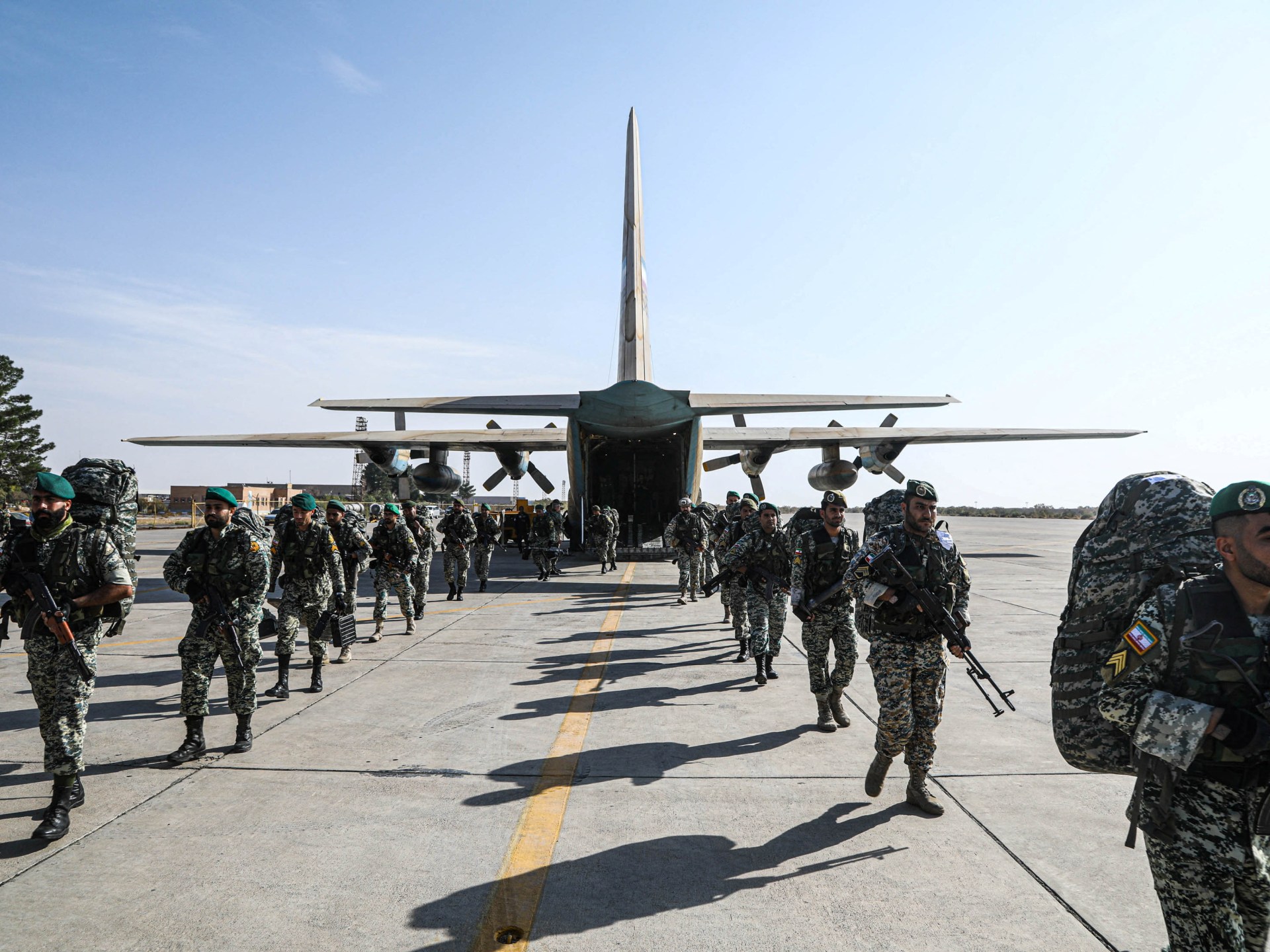Media
UK media industry must seize control of own destiny
|
|


The BBC Director-General today issued a rallying call to ensure our media industry can prosper and keep delivering benefits for the UK in the decades to come.
Tim Davie said the BBC, politicians, regulators and the wider industry must urgently work together to secure the future of a thriving, trusted, world-leading UK media market, as we transition towards an internet-only world.
The industry is facing choices over its future and must take bold decisions to ensure our much-admired creative, cultural and democratic strength and values prevail, he said.
Failure to seize this moment could see this lost to polarised platforms and overseas content.
The Director-General set out his vision for what a 2030s media market could look like, in a speech hosted by the Royal Television Society this morning.
Speaking directly to industry leaders, commentators and political opinion formers, Mr Davie said now was the moment for urgent action and collaboration, to futureproof the UK industry, allow it to grow and flourish and avoid repeating missteps of the past.
He said: “I want to set out some of the choices that we need to make, and make the case for ambition.
“This will require the BBC, regulators, politicians – all of us – to work together and make clear decisions. To invest capital and set policy, deliberately, not simply live on hope and good intent. To create a bigger creative sector supported by strong public service media and a thriving BBC.
“In short, we have reached a defining decade for the future of this incredible sector and this wonderful country.”
Mr Davie set out four decisive moves for successful digital-led future:
- Ensuring the UK is fully connected, so that everyone can get their TV and radio via internet in the years to come. A positive plan is needed to ensure UK businesses and audiences get maximum benefit, no one is left-behind and content remains universal and affordable – and not at the behest of rich overseas companies acting as gatekeepers.
- Champion a clear, market leading role for the BBC in the digital age. No-one in the world has created a digitally-led public service media company at scale. There is an opportunity to put the BBC at the heart of the UK’s media future. There is a plan for how an internet-only version of the BBC would operate, focused around a simple, single brand in the UK and abroad.
- Actively invest in the BBC. The BBC is one of the most powerful and recognised brands on the planet and we should be confident in it and back it. We are open minded about future funding mechanics, but we are clear that it is critical we have a universal solution that fuels UK public service growth – not stifles it – while offering audiences outstanding value for money.
- Move faster to regulate for future success. The UK’s legal and regulatory environment has not kept pace with the market. We need rules for the prominence, availability and inclusion of PSB content in new platforms, in video and audio. Plus a regulatory framework that is proactive, agile, and responds to obvious harm when it occurs – allowing innovation and growth across the industry, alongside the necessary and appropriate safeguards.
He said: “The choice of high-quality TV and audio has never been better. The threat is not about if there is choice, it is about the scope of that choice and what factors shape it.
“Do we want a US-style media market or do we want to fight to grow something different based on our vision?
“I sometimes read that the BBC needs to clock that the world has changed. I can assure you that we do not need any convincing.”
The Director-General added that now was the moment to actively secure the future of a world-beating creative economy, supported by strong public service media and a thriving BBC.
You can read the full speech here.
BBC Press Office
Media
DJT Stock Rises. Trump Media CEO Alleges Potential Market Manipulation. – Barron's
[unable to retrieve full-text content]
DJT Stock Rises. Trump Media CEO Alleges Potential Market Manipulation. Barron’s




Source link
Media
DJT Stock Rises. Trump Media CEO Alleges Potential Market Manipulation. – Barron's
[unable to retrieve full-text content]
DJT Stock Rises. Trump Media CEO Alleges Potential Market Manipulation. Barron’s




Source link
Media
Three drones downed after explosions heard in Iran’s Isfahan: State media – Al Jazeera English


Iran’s air defences have brought down three small drones over the central city of Isfahan, state media reported, hours after United States broadcasters, quoting senior US officials, said Israeli missiles had hit an Iranian site.
Iranian state television reported explosions in Isfahan as air defences were activated and flights across several areas, including the capital, Tehran, and Isfahan, were suspended.
Airspace was reopened about four and a half hours after the incident and there were no reports of casualties.
Second Brigadier General Siavash Mihandoust, the top military official in Isfahan, told state media that air defence batteries hit “a suspicious object” and there was no damage.
ABC News and CBS News had reported earlier that Israel had carried out a military operation in Iran.
Italy’s Foreign Minister Antonio Tajani said the US told the Group of Seven (G7) foreign ministers that it had been “informed at the last minute” by Israel about an attack on Iran.
“But there was no sharing of the attack by the US. It was a mere information,” Tajani told reporters in Capri, Italy, where the G7 ministers met.
However, US Secretary of State Antony Blinken refused to confirm reports about the Israeli attack, during a news conference in Capri.
“I’m not going to speak to that, except to say that the United States has not been involved in any offensive operation,” Blinken said.
The top US diplomat said the G7’s focus is on de-escalation. Asked to describe the current US-Israel relationship, Blinken noted that Israel makes its own decisions, but the US is committed to its security.
Iranian media said no strikes were launched on Iran from outside the country, and the attack was believed to have been carried out using small quadcopters that would have to have been launched from inside Iran.
Reporting from Tehran, Al Jazeera’s Dorsa Jabbari said Iranian media were downplaying the incident.
“The location in Isfahan province is an Iranian military airbase that belongs to the country’s army, and not the Revolutionary Guards [Islamic Revolutionary Guard Corps, IRGC]. I think it’s important to highlight that,” she said. “This base houses multiple squadrons of F-14 Tomcat fighter aircraft.”
“We also understand that the air defence systems over the city of Tabriz in the northwestern part of Iran were also activated,” Jabbari reported.
A military factory belonging to the Iranian army in Isfahan was attacked by multiple quadcopters in January 2023, failing to damage the facility that was protected by air defence batteries and mesh wiring on its roof to counter small unmanned aerial vehicles.
Iran blamed Israel for that attack and arrested four people, executing one of them in January 2024, for operating on behalf of Mossad, the Israeli spy agency.
Israel had promised to respond after Iran launched a barrage of drones and missiles on the country on April 13, after a suspected Israeli attack on Iran’s consulate compound in Damascus killed 16 people, including two IRGC senior generals.
Governments around the world urged restraint and a push to de-escalate tensions across the region.
Isfahan is considered a strategically important city and one that is host to several important sites, including military research and development facilities, as well as bases. The nearby city of Natanz is the location of one of Iran’s nuclear enrichment sites.
In a speech in Damghan, in central Iran, Iran’s President Ebrahim Raisi made no mention of Isfahan but praised the Iranian attacks on Israel, saying they gave the country strength and unity.
Kioumars Heydari, the commander-in-chief of the ground forces of the Iranian army, said Iran remains vigilant to confront any other potential aerial threats.
“If suspicious flying objects appear in the sky of the country, they will be targeted by our powerful air defence,” he was quoted as saying by the state-run IRNA news agency ahead of Friday prayers in Tehran.
‘No damage’ to nuclear facilities
The International Atomic Energy Agency (IAEA) confirmed that “there is no damage” to Iranian nuclear sites as the United Nations nuclear watchdog’s chief Rafael Grossi called for restraint and said nuclear facilities should never be targeted in military conflicts.
IAEA can confirm that there is no damage to #Iran’s nuclear sites. DG @rafaelmgrossi continues to call for extreme restraint from everybody and reiterates that nuclear facilities should never be a target in military conflicts. IAEA is monitoring the situation very closely. pic.twitter.com/4F7pAlNjWM
— IAEA – International Atomic Energy Agency ⚛️ (@iaeaorg) April 19, 2024
The reported attack “was far more limited than many expected”, Iranian arms control expert Ali Ahmadi told Al Jazeera, adding that Israel “has much more limitations in its operational range” than many think.
“Certainly, after Iran’s retaliatory capacity was criticised, it benefits from advertising how ineffective what Israel did was as well. Iran also needs to prepare the public for a much softer reaction than it has talked about in the last couple of days,” he pointed out.
Ahmadi said that prior to today’s incident, Iran was preparing several options for a massive retaliation, including getting allies involved.
But considering the limited scope and impact of the alleged attack, which he described as a “security sabotage” rather than a “military assault”, it would be a mistake to carry out a significant response, he stressed.
There were also reports of explosions in Iraq and Syria, with Iranian state media saying there were explosions at multiple military-linked sites in Syria.
Syria’s official news agency SANA quoted a military source as saying that missile strikes in the early hours of the morning caused material damage to air defence sites in the country’s southern region. The report did not specify the exact location and the extent of the damage but blamed Israel.
The US and a number of European countries had been calling on Israel not to respond to Iran’s attack.
On Thursday, UN Secretary-General Antonio Guterres painted a dark picture of the situation in the Middle East, warning that spiralling tensions over Israel’s war on Gaza and Iran’s attack on Israel could descend into a “full-scale regional conflict”.
“The Middle East is on a precipice. Recent days have seen a perilous escalation – in words and deeds,” Guterres told the UN Security Council.
“One miscalculation, one miscommunication, one mistake, could lead to the unthinkable – a full-scale regional conflict that would be devastating for all involved,” he said, calling on all parties to exercise “maximum restraint”.
-
Media5 hours ago
DJT Stock Rises. Trump Media CEO Alleges Potential Market Manipulation. – Barron's
-
Business23 hours ago
BC short-term rental rules take effect May 1 – CityNews Vancouver
-
Media7 hours ago
Trump Media alerts Nasdaq to potential market manipulation from 'naked' short selling of DJT stock – CNBC
-
Art23 hours ago
Collection of First Nations art stolen from Gordon Head home – Times Colonist
-



 Investment23 hours ago
Investment23 hours agoBenjamin Bergen: Why would anyone invest in Canada now? – National Post
-
Media19 hours ago
DJT Stock Jumps. The Truth Social Owner Is Showing Stockholders How to Block Short Sellers. – Barron's
-
Investment6 hours ago
Private equity gears up for potential National Football League investments – Financial Times
-



 Health19 hours ago
Health19 hours agoType 2 diabetes is not one-size-fits-all: Subtypes affect complications and treatment options – The Conversation




